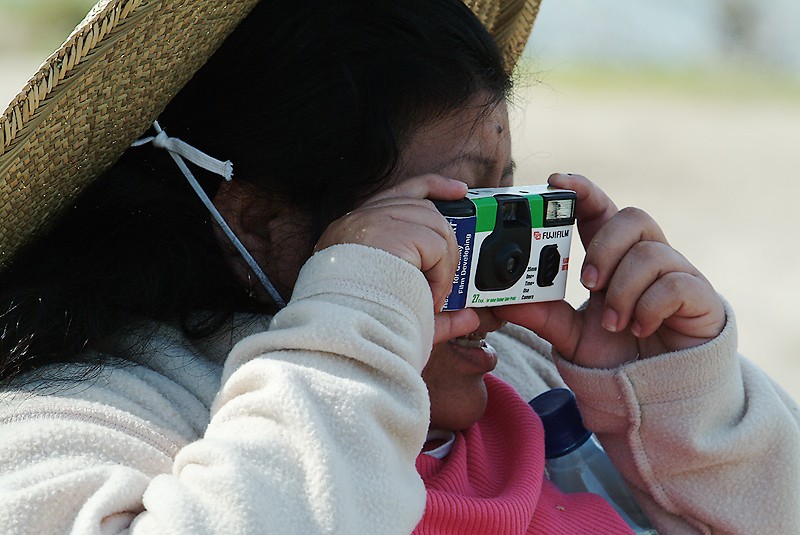[at what point (pixel density) do we see this impact on a high quality lens? Say on a high quality piece of canon L glass?
It became visible on the Canon 50D, at 15 megapixels on a 1.6x APS-C sensor, which is the smallest of the APS-C sensors, measuring roughly 14.8mm x 22.2mm, or 329 square millimeters in area. As they noted in their conclusion after testing the 50D for several months: "It appears that Canon has reached the limit of what is sensible, in terms of megapixels on an APS-C sensor. At a pixel density of 4.5 MP/cm² (40D: 3.1 MP/cm², 1Ds MkIII: 2.4 MP/cm²) the lens becomes the limiting factor. Even the sharpest primes at optimal apertures cannot (at least away from the center of the frame) satisfy the 15.1 megapixel sensors hunger for resolution. Considering the disadvantages that come with higher pixel densities such as diffraction issues, increased sensitivity towards camera shake, reduced dynamic range, reduced high ISO performance and the need to store, move and process larger amounts of data, one could be forgiven for coming to the conclusion that at this point the megapixel race should probably stop. One consequence of this is that the 50% increase in pixel count over the 40D results in only a marginal amount of extra detail."
Canon EOS 50D Review: 31. Conclusion: Digital Photography Review
So, there you go...15 megapixels on APS-C is already stressing Canon's "sharpest primes" away from the center of the frame--and that on an APS-C-sized sensor! The issue of lens diffraction on the Nikon D2x's larger sensor, 370 square millimeters, and a 12.2 megapixel count in my own experience shows that diffraction begins kicking in around f/4.5,meaning that is the smallest-diameter aperture one can use, before the images begin to LOSE sharpness,contrast, and there is NO GAIN in sharpness, only greater depth of field as the lens is stopped down.
The upshot of the above is that, unless you are shooting the most-modern lenses, like Canon's new 70-200 Mark II, and not their older 70-200 2.8 L IS (like the one I own), the vast,vast majority of zoom lenses are insufficient for the task. The new Canon 7D, using the newer 17-55 Canon IS lens....looks like crap at wide-angle near the edges of the frame...the lenses we have, in the largest part, are simply NOT good enough to handle 15 to 18 megapixels on a small sensor like a Canon 1.6x size sensor...
The total system, sensor size, sensor technology,anti-aliasing filter pack, digital software processing of the signal, lens performance---all of those things have to work together. We cannot continue to up the megapixel counts using the vast majority of lenses currently in existence in today's marketplace. As Leica found out when developing the S2, we are now "lens-limited"....a few years ago, the lenses were capable of looking good on all sensors...what we need to do NOW, in 2010, is to go to physically larger sensors, to get the best resolution, clarity, and apparent acutance, and the best color and the widest dynamic range. It really irritates the buyers and lovers of the small-sensor, ultra-high MP cameras to hear it, but full frame sensor size is the path to the best quality...Canon has already hit the wall with 17.8 million pixels on their small, 1.6x sized sensors. The highest lens performance tests are coming from full-frame bodies, not APS-C bodies...so the total,overall SYSTEM PERFORMANCE winner is currently,and always will, be the larger-sensored cameras.


 We could do 25 pages and 5,000 views in probably a week or so.
We could do 25 pages and 5,000 views in probably a week or so.


![[No title]](/data/xfmg/thumbnail/42/42492-60144191c917c21139f8acd72f6ba090.jpg?1734177011)

![[No title]](/data/xfmg/thumbnail/31/31980-e5048a424621c7b3cd0d306d63c09d67.jpg?1734160756)
![[No title]](/data/xfmg/thumbnail/41/41901-789e8104ff95e5862c8f07611e3c34c0.jpg?1734176261)




![[No title]](/data/xfmg/thumbnail/34/34689-7546fa5b2c817c48b60563925693cd53.jpg?1734165695)